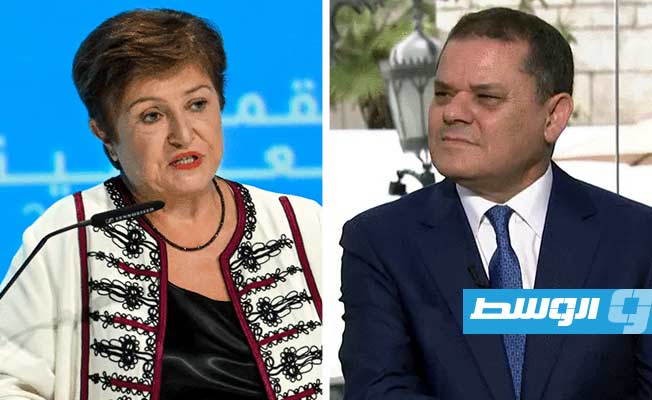- Sat April 27, 2024|
 Alwasat FM|
Alwasat FM|

The International Monetary Fund's (IMF) Managing Director Kristalina Georgieva is encouraging the elimination of energy subsidies in the region according to her remarks at the World Government Summit in Dubai.
The IMF chief revealed the publication of a paper on Monday showing that phasing out fuel subsidies could save $336 billion in the Middle East, equivalent to the economies of Iraq and Libya combined.
Phasing out energy subsidies "reduces pollution and helps improve social spending," according to a copy of the letter posted on the IMF's website.
The IMF's publication on lifting subsidies coincides with Government of National Unity Prime Minister Abdulhamid Dabaiba's participation in the event, where he told Cnbc Arabia that he expected fuel subsidies to be "lifted in the middle or end of this year after Libyans are persuaded."
Dabaiba added that the consumption of gasoline, water, and electricity costs millions of dinars annually, and is borne by the state alone, saying: "We are a dependent society that does not work or produce."
A 2015 World Bank report recommended that subsidies on goods in Libya should be reduced in "a gradual rather than a big bang approach," noting that a full cut "could lead to social unrest".
The report added that the elimination of full subsidies on food and fuel would raise the poverty rate by about 17.7%, but that providing direct cash support to citizens would be sufficient to stabilize poverty rates.
For its part, the IMF, when announcing the resumption of its monitoring activities in Libya in 2023 after a more than decade-long hiatus, recommended that the government "urgently come up with a transparent budget that reduces the costs associated with high spending on public sector wages and subsidies."
According to experts, public sector salaries dominate government spending, especially since about 2.2 million citizens, representing about a third of the population, work in the public sector. The bulk of subsidies go to fuel, amounting to about 25% of government spending.
The IMF noted at the time that "the domestic price of gasoline is 3 cents per liter, the second lowest price in the world."
Despite the IMF's recommendations, the current sentiment on the Libyan street fears a similar scenario to previous governments abandoning their promises to replace commodity subsidies with cash, as happened in 2015. That was followed by a tax on the dollar exchange rate, then the devaluation of the national currency which led to a decrease in the purchasing power of the dinar without compensation for the citizen.
Food subsidies in Libya included 12 products in 2011, before their gradual removal from several food items, including oil, sugar, and tomatoes.
Attempts to lift fuel subsidies date back to 2000 during the former regime then in 2013 by the General National Congress.
Comments